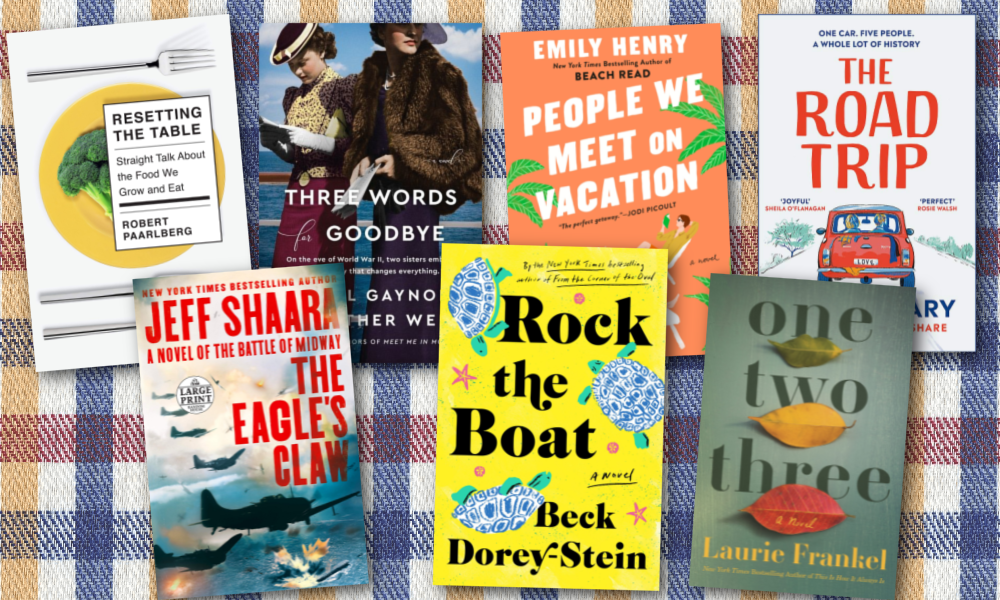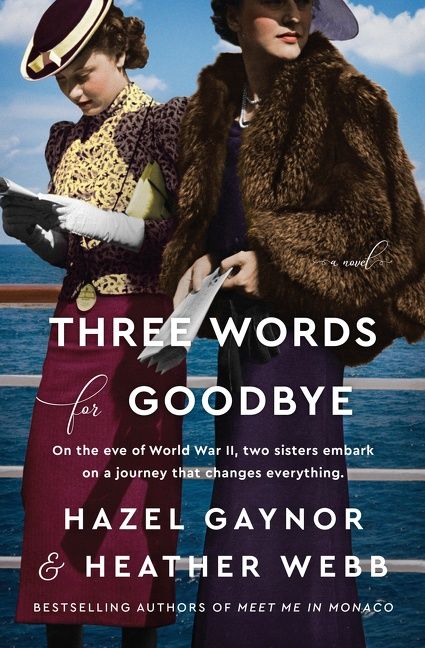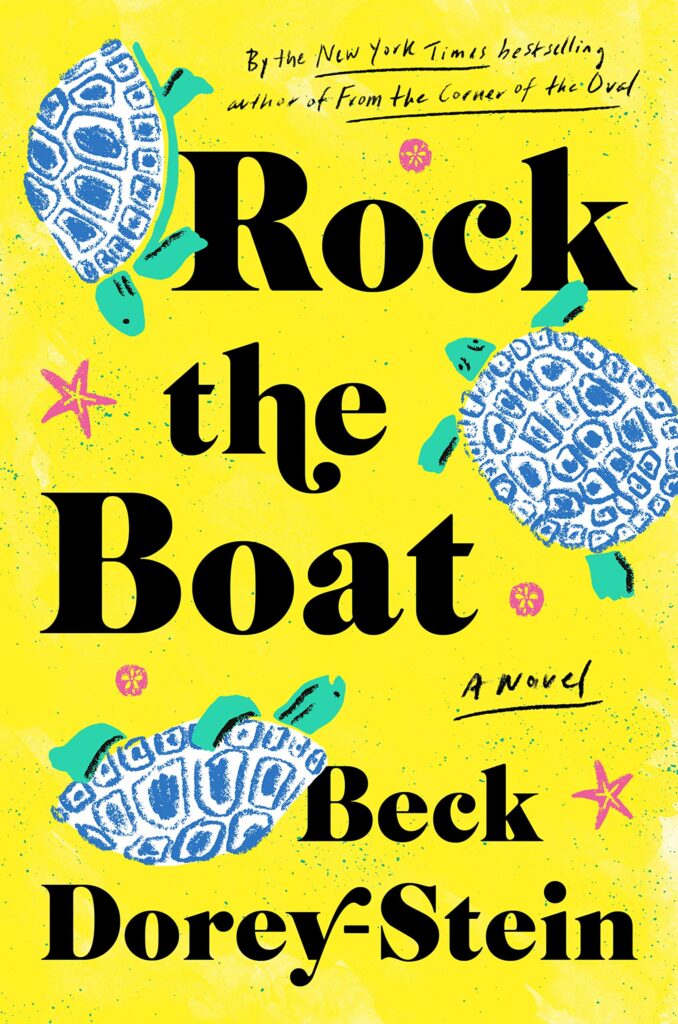People We Meet on Vacation by Emily Henry, recommended by Tracie
Poppy and Alex have vacationed together every summer since they met in college. They are so sensitive to each other and so afraid of ruining a good friendship, they have trouble going to the obvious next level. They experiment with other romances and flings, but keep returning to each other until…
One Two Three by Laurie Frankel, recommended by Megan
Mirabel, Monday, and Mab are teenage triplets growing up in Bourne, town profoundly affected by industrial runoff, which caused many residents to grow sick, become disabled, or lose their lives. Their mother is obsessed with getting justice; they’re just trying to find a semblance of normalcy in a town that is anything but. When new neighbors arrive in town, it forces the girls to reexamine what they know about Bourne, the chemical company, and their family. This novel is told in alternating viewpoints between each girl. It can take time for a reader to find their footing, but each triplet comes to life in her chapters, driving the story to its satisfying conclusion.
Three Words for Goodbye by Hazel Gaynor and Heather Webb, recommended by Debbie
Set in New York, 1937, two sisters are sent on an adventure by their grandmother to deliver three letters. On the way, they discover family secrets and rebuild their relationship. A story about familial ties delivered in descriptive detail that makes you feel as if you are along for the ride.
The Road Trip by Beth O’Leary, recommended by Karen
Due to a fender bender, two exes, Dylan and Addie, end up on a road trip — stuffed in a small car with three other people — to rural Scotland for a mutual friend’s wedding. During the trip Dylan and Addie realize they still have feelings for each other, and try to figure out what went wrong with their relationship. Going back and forth between the past and present, we see how Dylan and Addie’s relationship progressed and then dissolved, and how they choose to move forward. A fun summer read about friendship, forgiveness, second chances and more.
The Eagle’s Claw by Jeff Shaara, recommended by Dennis
Shaara fictionalizes the events from both sides of the Battle of Midway conflict based on research and featuring people involved in the skirmish. Melding fact and fiction supplies exciting detail regarding what happens when the two sides meet, and provides intimacy and insight into one of the most famous battles of WWII. The dialogue between the leaders and their men, the guess work regarding what each side was doing and the decisions made makes for an interesting read.
Rock the Boat by Beck Dorey-Stein, recommended by Diana
Three friends from the small ocean-front town of Sea Point, New Jersey leave to search for lives larger than Sea Port has to offer. Their new lives became even more disappointing than the lives they left behind. Brought back for different reasons they find themselves falling in love once again with life at Sea Port and what their renewed friendships offer.
The characters were engaging. I was caught up in the hope of the story and how once disappointing lives became purposeful and fulfilling.
Resetting the Table by Robert Paarlberg, recommended by Louise
It’s always interesting to read one of your heart-felt certainties challenged by an intelligent and well-researched book. That is what happened when I read Paarlberg’s new book on food production. For years I believed that organic is better, and that small farms are intrinsically better for the planet than large agri-business farms. Paarlberg challenges these beliefs, asserting that industrial farming has become ‘greener’. Large farms using GPS guided equipment use far less fertilizer and chemicals while achieving greater yields to feed a growing world population. There is still plenty of room for improvement, including better regulations regarding the treatment of animals. As the author points out, farming is about the only area of modern life where we do not embrace scientific advances, choosing instead to throw ourselves whole-heartedly back into early 20th century practices. Whether you agree or not, it is a provocative read and may change how you think about the food you put on your table.


